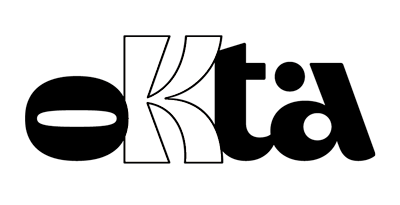5 Advantages of Investing in Branding
- Okta Branding
- Apr 11, 2019
- 3 min read
You've probably heard that "The brand is the company's main asset," but what exactly does that mean? It means that a valuable brand is an intangible asset that generates financial value for the business. Some studies have shown that companies listed on stock exchanges have, on average, over 50% of their market value built by intangible assets, especially the brand.
The Apple brand, the most valuable in the world in 2018 according to Interbrand, is estimated at over 200 billion dollars. Can you imagine that? This exorbitant value is how much everything the Apple brand represents abstractly is worth – its reputation, image, personality, way of being, and positioning. All this without even considering its physical assets. You might be wondering how it manages to achieve this value. Through branding, that is, by continuously building and managing its brand.
Branding is a business management model focused on building intangible brand value. It is a way of thinking strategically about your business to build a strong and relevant brand. Brand value is not only associated with the financial amount but also the symbolic value it represents, building competitive strength.
How branding can transform your business:
Holistic View of the Company:
A brand is not only linked to the communication and marketing sector. All areas are responsible for its management. Companies oriented by branding tend to have a global view of the business, creating a coherent strategy from the product to be offered, the price to be charged, the team to be hired, the processes to be executed, the consumer experience to be delivered, and so on.
Clarity about Your Essence:
Clearly understanding your brand's essence allows you to make more coherent and assertive decisions. For example, in Porto Alegre, there was a restaurant that offered Fondue, Pizza, and Sushi and was not very good at any of them. If you have ever been confused by this strange product offering, imagine the difficulty of making decisions that make sense for this business.
Employee Engagement:
Many entrepreneurs overlook the importance of the role of their team. They represent you in front of the customer, meaning they personify your brand. If you receive poor service in a store, you will blame the brand, not the person. Branding allows the construction of a more aligned organizational culture and engages employees with the company's purpose, forming a team committed to the brand.
Connection with Your Consumer:
The brand's personality translates into relevant experiences for your consumer. Strong brands build unique personalities and influence consumer choices for reasons beyond just the price. They understand that people identify and trust brands that express their way of being. Charles Trevail, CEO of Interbrand, says, "We live in a world where the consumer has more power than ever, selecting their brands as we have never seen before. Brands like Amazon, Spotify, and Netflix lead in this era, improving our lives in a very personal way." This is how you create an emotional connection and allow the building of a genuine relationship.
Lasting Differentiation:
Companies oriented by branding understand that to build lasting differentiation, they cannot rely on differentiators that are easily replicable. They go beyond the superficiality of tangible attributes, such as quality, technology, and product, and deliver intangible and emotional benefits, positively impacting people's lives. If Netflix had built its differentiation merely based on the innovative streaming service, it would have quickly lost its leadership since streaming became accessible to its competitors. By building its brand with a genuine and authentic personality, no other competitor would have the ability to copy the "Netflix way of being." And that's what keeps it as a leader.
"Only when you have a deep understanding of who you are and where you are going tomorrow can you confidently make the bold decisions necessary in the short term to win today" (Interbrand, 2018). That's the power of branding. And this is not exclusive to big brands. Companies of all sizes have the power and capacity to use branding as a strategic tool to leverage their businesses.



